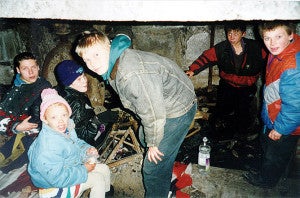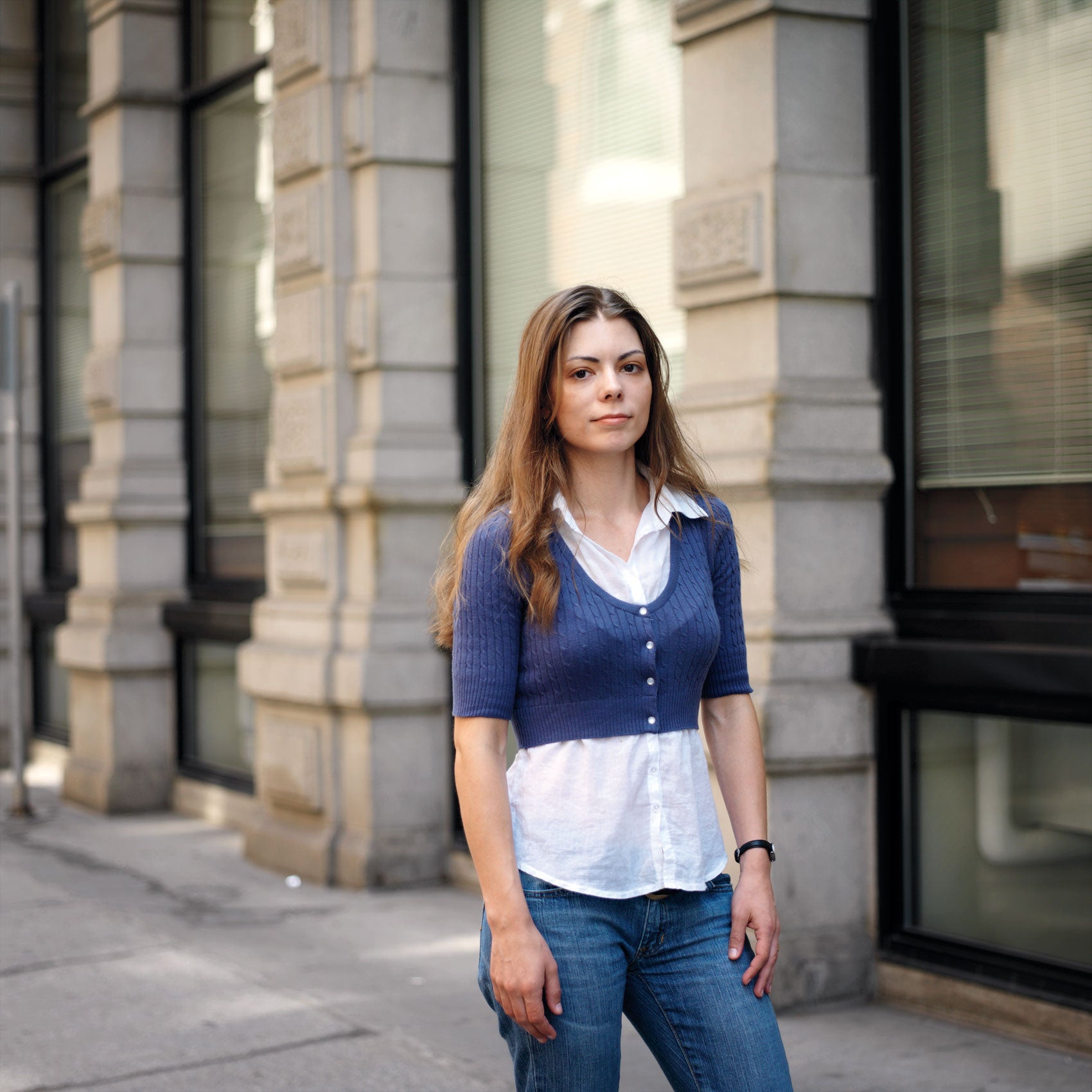Christina Greenberg’s client was labeled disruptive and was sent home from elementary school every single day last spring. The 8-year-old—who is mentally disabled, has hydrocephalus, seizures and is in a wheelchair—then lost summer services because his school district failed to submit the necessary paperwork. His mother—struggling to care for her son and his disabled twin on $1,000 a month—was desperate when she reached Greenberg, a summer intern with Massachusetts Advocates for Children.
For Greenberg, getting the boy the care he needed was a challenge that hundreds of Russian street children had prepared her to embrace.
Almost 10 years ago, when Greenberg was 18, she moved from San Francisco to Moscow with her parents. She began volunteering at orphanages in the capital city but soon decided, with her brother, Jered Markoff, 22, to move to a remote area where their work would have greater impact. They chose Perm, Russia. “My parents were a little bit nervous, I think, but they welcomed that we wanted to volunteer,” she said.
A gateway to Siberia, Perm was once a manufacturing center for the Soviet military and had opened to foreigners just a few years before Greenberg and her brother arrived. The siblings intended to work for orphanages but changed their focus after finding hundreds of children living wild on the streets.
Runaways and orphans (some as young as 3) took shelter in sewers and begged or stole to survive as winter temperatures dipped to 13 below zero. Viewed as “rats” and “criminals,” the children were brutalized by police and ostracized by the local population. “I knew if I didn’t do something, nobody would,” said Greenberg.

The siblings set up a soup kitchen in the open-air market with food donated by the market’s director. The first week, they served 10 children. By the following week, they were inundated.
Using their own money and a few thousand dollars they raised locally, Greenberg and her brother renovated a basement apartment to use as a day center. They called their organization Love’s Bridge, and when they opened their doors on Feb. 14, 1998, it was a novelty in the post-Soviet era city. “It wasn’t like we were a second shelter or if you didn’t get food down the street, you got food here. We were it,” she said.
Less than a year after graduating from high school, Greenberg confronted head on the myriad problems plaguing Perm’s street children. When one child broke a glass on another’s head, she switched to plastic. When another escaped from a group of pornographers, she went to court and helped him testify. She partnered with medical doctors and an AIDS clinic, negotiated with school officials and counseled countless children as they gave up sniffing glue and resumed their studies.
According to a CNN reporter who spent hours filming her in Russia for a 2005 report, Greenberg “exercised a remarkable authority over some of the wildest children in the country” without ever once raising her voice.
During the five years Greenberg lived in Perm, she raised hundreds of thousands of dollars by asking everyone she could think of—local businesses, foreign contacts and friends—for help. She expanded Love’s Bridge from a small soup kitchen to an organization that includes a day center, a 16-bed shelter and a place to help teenagers live independently. The project, initially run by volunteers, now has a professional staff of 22, and Greenberg estimates that during her tenure more than 2,000 kids received some sort of assistance from it.
Her work—covered extensively by local and national media—dramatically reduced the number of street children in Perm. But it also transformed the community. “The way people looked at homeless children completely changed,” said Greenberg. “A lot of regular Russian people really started stepping up to the plate.”
In 2003, she returned to the United States to continue her education. “I always felt there was a lot more I could do in Russia if I was able to advocate legally for some of the children,” said Greenberg, who remains on the board of Love’s Bridge.
She completed her bachelor’s degree at the University of California, Berkeley, and in 2006, she chose to attend Harvard Law, over Stanford and Yale, in part because of HLS’s Child Advocacy Program.
During the fall semester, Greenberg took a CAP class, Child, Family and the State, and she is signed up for a CAP clinical in the spring. She doesn’t know where her legal career will take her, but, she says, her advocacy this summer in Massachusetts—including securing her client summer services, as well as an alternate placement and a one-to-one aide for next school year—has given her a sense of fulfillment she hasn’t had since leaving Russia.
“It’s such an exhilarating feeling, knowing that I can do this and I can help people who really would not get help elsewhere,” said Greenberg. “I’m walking on air.”
